[ad_1]
For many who’re fascinated by together with blackberries to your yard this 12 months, I’d wish to go on file saying that you will not regret the selection to develop these tasty fruits. As a family who eats some form of berries day by day with our breakfast, blackberries have flip into actually one in every of my favorite fruits to develop.
With their climbing habits, blackberries can develop in a small amount of home, and they also promise to yield an unbelievable harvest beginning of their second 12 months, and yearly thereafter. They’re splendidly low-maintenance, good producers, and they also pack an antioxidant punch that has just a few rivals.
There are a number of varied crops which may be utilized in rising the yield of your blackberry crops. Just a few of them mutually revenue from the connection as successfully and provide a harvest of their very personal. Let’s discuss blackberry companion planting, and what it’s possible you’ll plant to increase your harvest this summer season.
Companion Planting
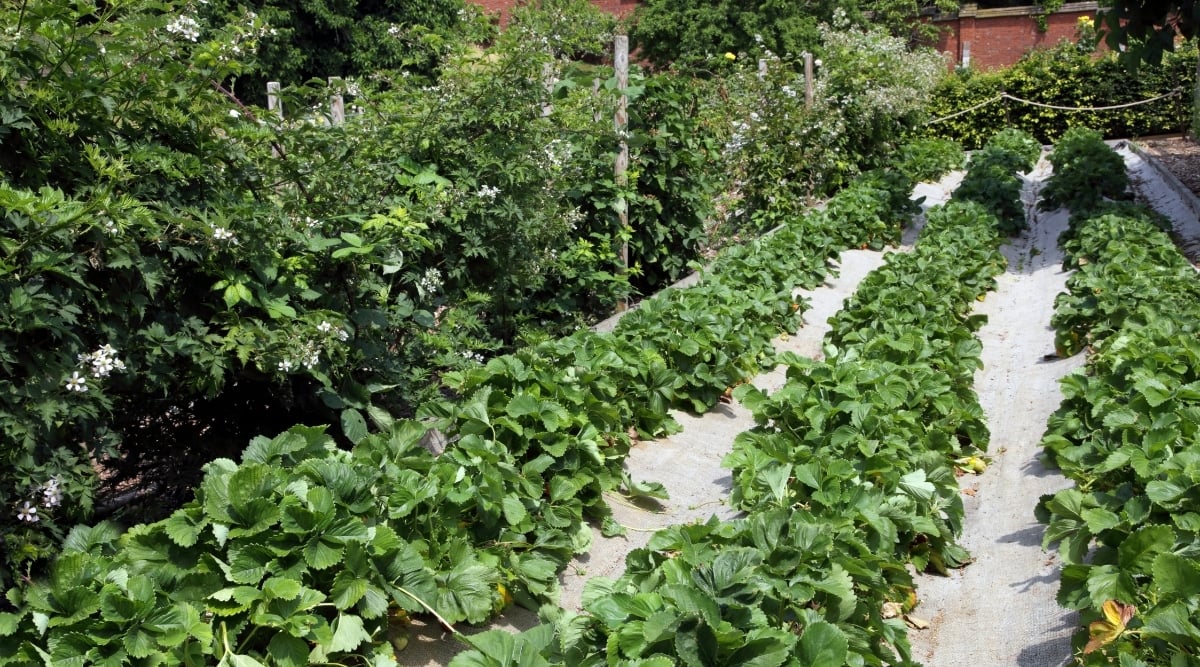

Companion planting is the observe of planting two or further completely completely different crops in shut proximity to at the very least one one different, to realize benefits for one or every crops, ideally for all involved. In nature, this happens organically. Crops are prone to develop close to these they revenue from a relationship with.
The observe of companion planting was utilized by the North American Indians prolonged sooner than English settlers arrived on the continent. Most notably, the trio of corn, beans, and squash, commonly known as the Three Sisters, have been grown together with loads success for all three crops.
To know the connection between the three crops, we take a look at each plant’s environmental needs and improvement habits.
The corn acts as a trellis for the beans to develop upon. The beans draw nitrogen for the other crops to benefit from, along with stabilize the corn, and the large leaves of the squash crops serve to insulate the other plant’s roots and preserve moisture inside the flooring along with cut back the growth of weeds.
Blackberries as Companion Crops
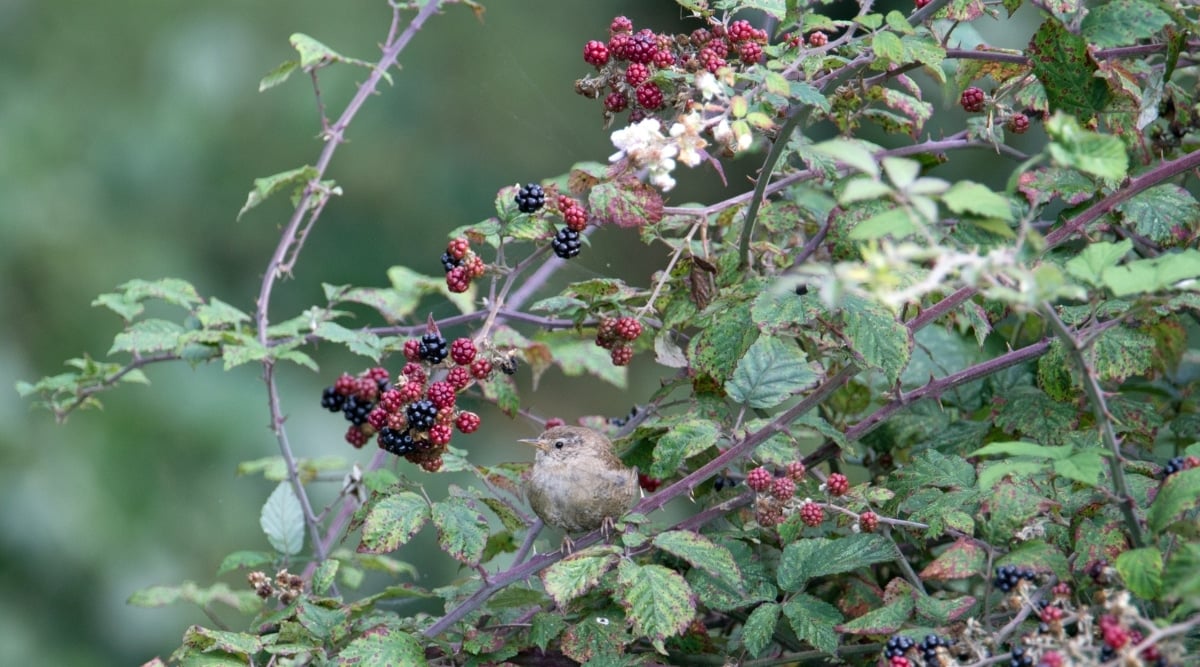

Ideally, the connection between all companion crops is a symbiotic one. Each plant could have specific points that they create about to the desk, and likewise what they take away.
Let’s take a look on the benefits and drawbacks of blackberries as companion crops, after which discuss which crops make good companions in your blackberry crops as successfully.
Blackberries are such a delicious and healthful fruit to develop, and very easy! These vining crops are happiest after they’ve one factor to develop upon, and loads of water and sunshine. Their u003cstrongu003efertilizing needs are lowu003c/strongu003e, and they also like soil that drains successfully.rnrnIn phrases of what they’ve to provide in companion planting, blackberries develop successfully on trellises and have a barely small footprint inside the yard. This makes them an unbelievable home saver. Blackberries moreover provide some shelter from intense photo voltaic and wind in the event that they’re positioned in such a way that they shield one different further fragile crop.
Relating to disadvantages, blackberries have only one that is considerably noteworthy. That is, they u003cstrongu003espread quicklyu003c/strongu003e, sending up new shoots in regardless of areas they please. This habits makes them significantly invasive, in order that they’re troublesome to pair with completely different edibles, nevertheless they do very successfully with herbs and flowers, rising pollination.rnrnMostly, blackberries are useful for human consumption, so no matter their lack of offering to completely different crops, they’re worth rising for that function alone. Further important are the crops that make good companions for blackberries by rising the fruit yield and minimizing pests.
Companion Crops for Blackberries
There are lots of crops that make good companions for blackberries. From drawing pollinators to repelling harmful bugs, and enriching the soil, each of these crops has one factor specific to provide that may improve your blackberry harvest 12 months after 12 months.
Apple Bushes
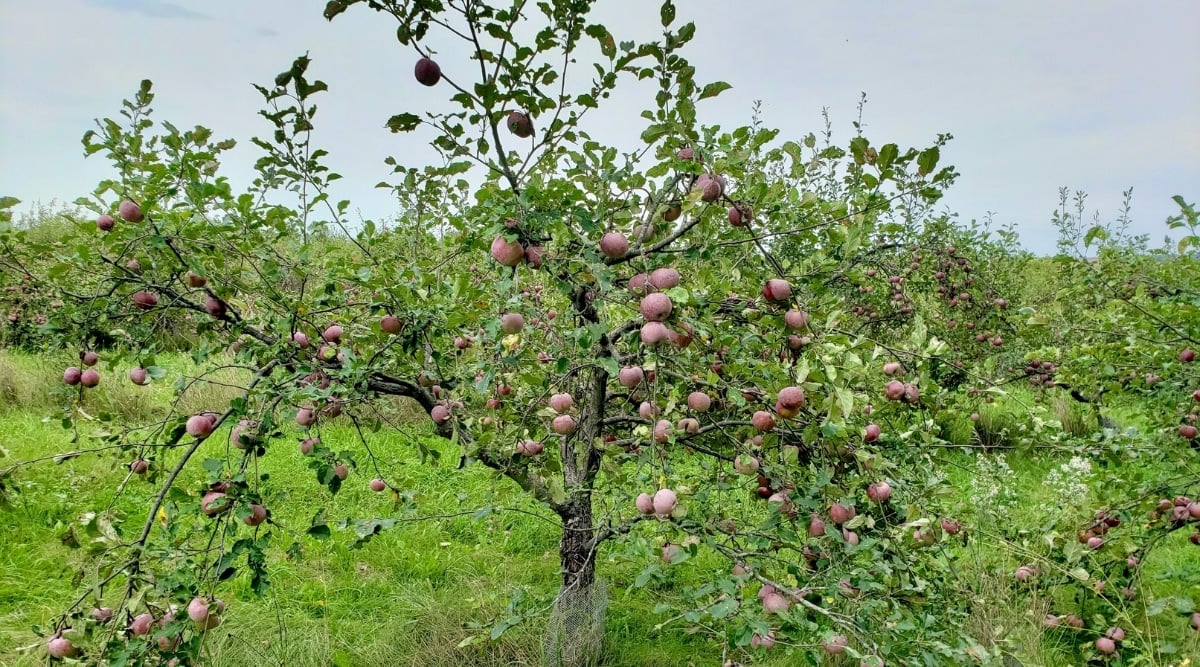

Apple bushes can be found many different varieties, and most will develop in practically any soil state of affairs. There are a variety of types it’s possible you’ll choose from in your yard which shall be full-sized or dwarf bushes.
They provide a lovely dappled shade that blackberries benefit from. The flowers are pretty and attraction to useful pollinators to the yard.
Since apple bushes are deciduous, their leaves drop to the underside after the rising season. These fallen leaves create a pure mulch that blackberries revenue from over the winter. As quickly as these leaves decay, the soil is rich with useful nutritional vitamins much like nitrogen, potassium, and phosphorus.
Grapes
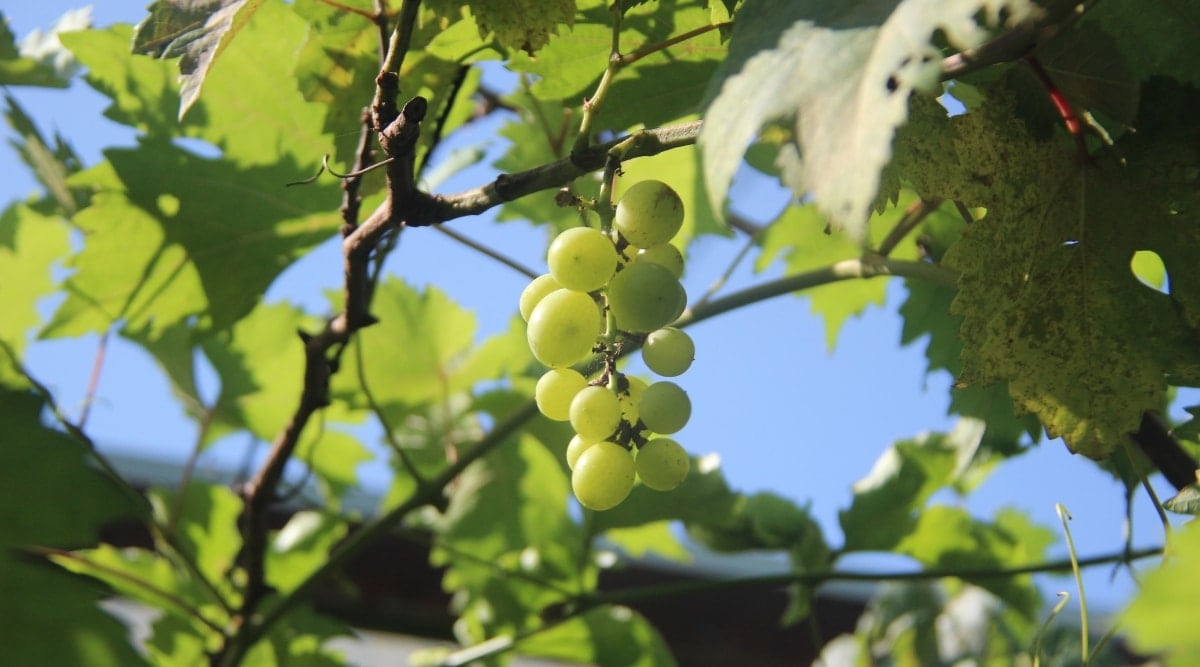

Grapes are vining crops with the an identical needs for soil and rising conditions as blackberries, making them good companion crops. Blackberries are useful to grapes as they till the soil, which helps the roots to unfold out.
The one battle is also home, as each of these crops requires a great deal of home to develop. It is doable that these two crops can flip into intertwined, so keep in mind to arrange them to keep away from each other. Using trellises is an effective approach to accommodate every crops inside the yard to permit them to nonetheless revenue from each other.
Mint
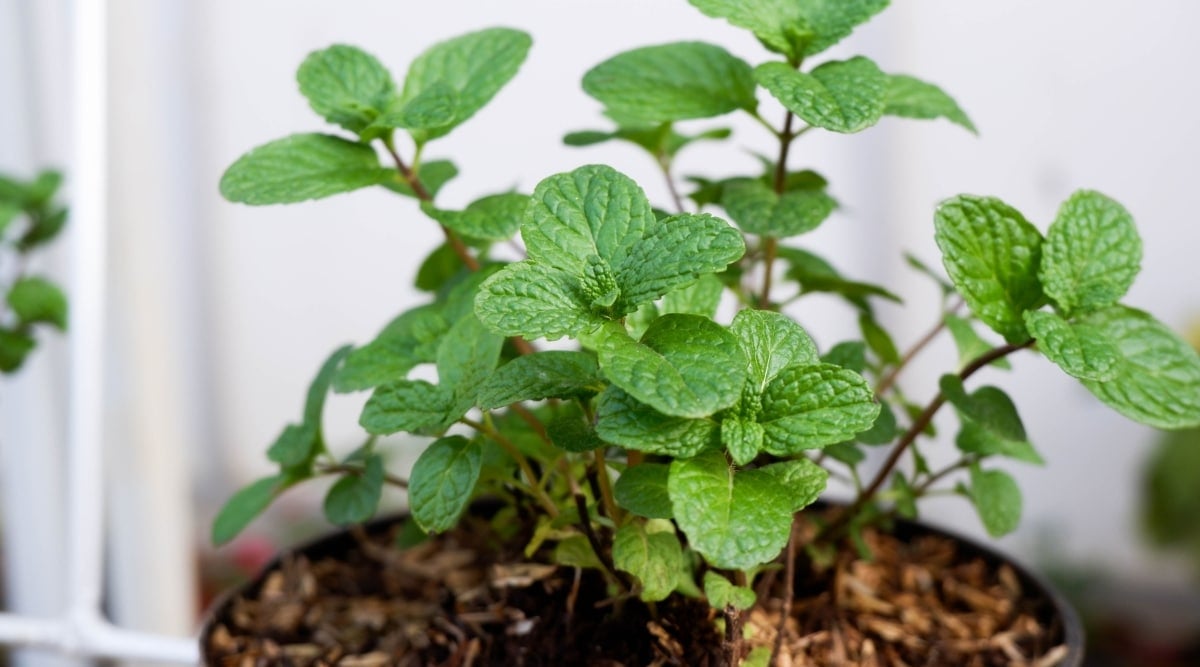

Mint is a primary yard staple and a very versatile herb to have inside the yard. Planted with blackberries, mint’s sturdy scent can confuse pests that get your hands on blackberries to feast on. Flowering varieties help to attract pollinators, which is ready to improve the yield of your blackberry crops.
One factor to ponder with mint is that it spreads shortly. A small mint plant can take over a yard mattress in a short while. Since blackberry crops have sturdy spreading habits themselves, this isn’t as quite a lot of a difficulty as a result of it’s maybe for various companions.
Nonetheless, should you occur to’re hoping to incorporate the mint, it’s a very good suggestion to offer it borders or protect it in a container.
Lemon Balm
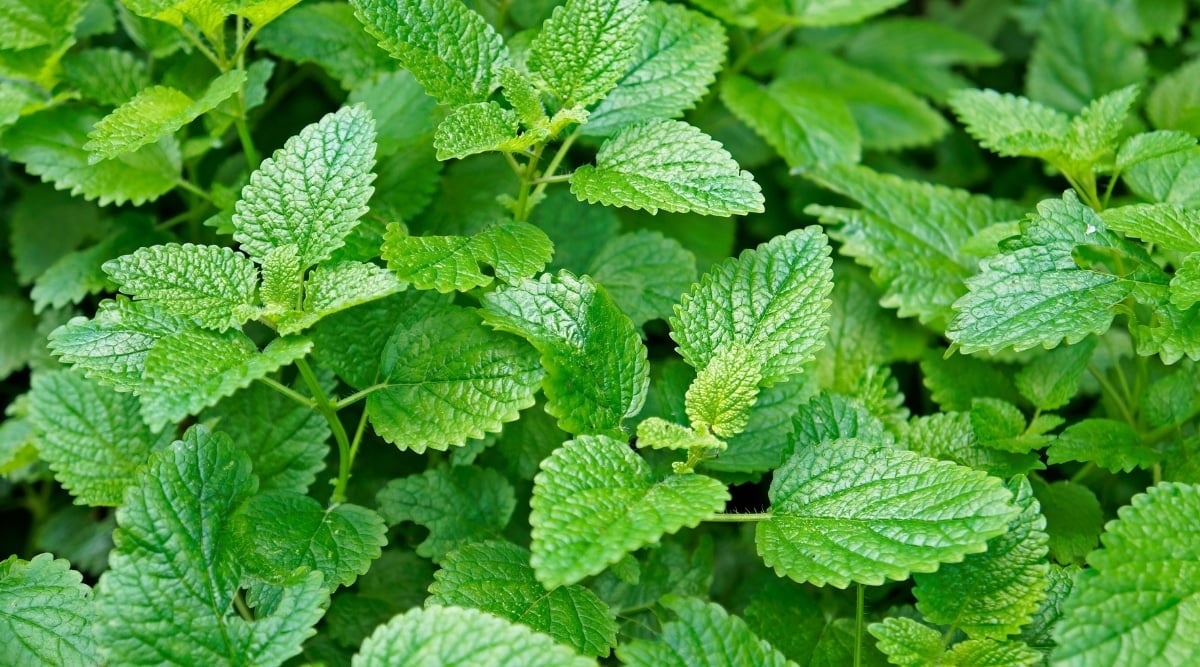

Lemon Balm, or Melissa officianalis, is a member of the mint family and makes a nice companion for blackberries as successfully. Serving as a flooring cowl, lemon balm helps to protect roots and preserve moisture inside the soil which blackberry gladly makes use of.
Pollinators love this herb when it is in bloom, so it ought to improve your berry harvest. Be careful regarding the unfold. As with completely different herbs inside the mint family, lemon balm can flip into invasive, so it does successfully when given borders.
Utilized by itself, lemon balm is claimed to help relieve stress and indigestion, along with being usually used as a sleep assist.
Hyssop
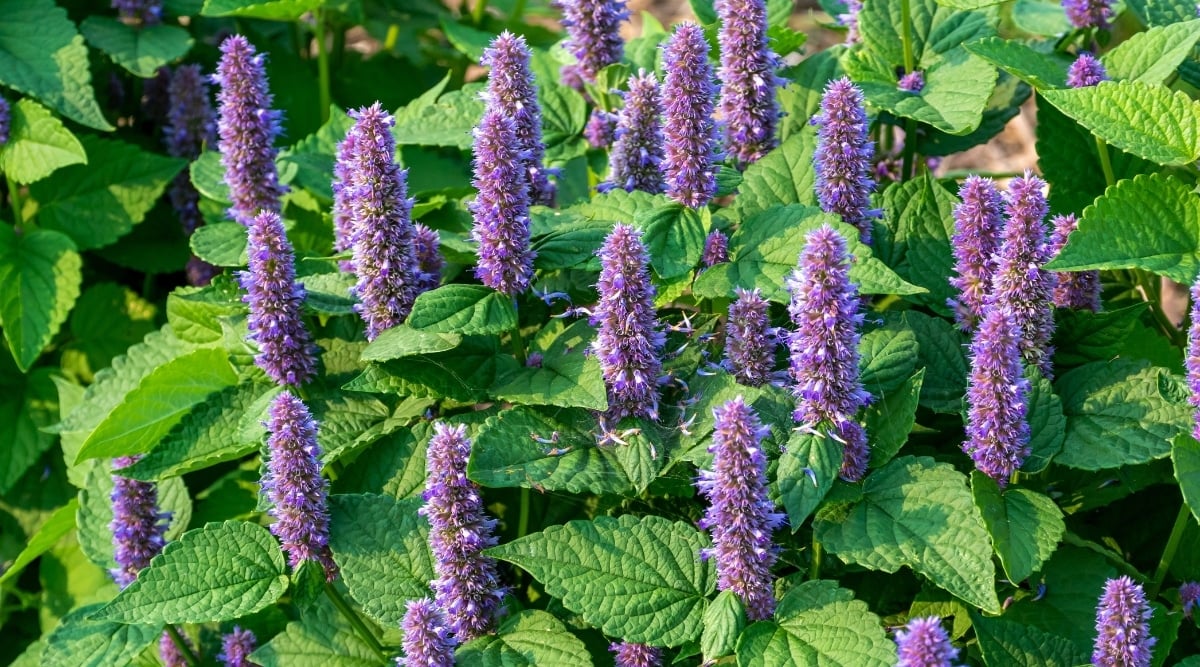

That’s one which many blackberry growers have in mind the right companion plant for blackberries. Hyssop is a tall rising herb that flowers generously and could possibly be very engaging to pollinators.
Hyssop moreover helps to protect blackberries from pests much like cabbage moths and flea beetles, because it’s further attention-grabbing to these pests, and so they’ll depart your blackberries to ripen whereas feasting on their neighbor.
Bee Balm
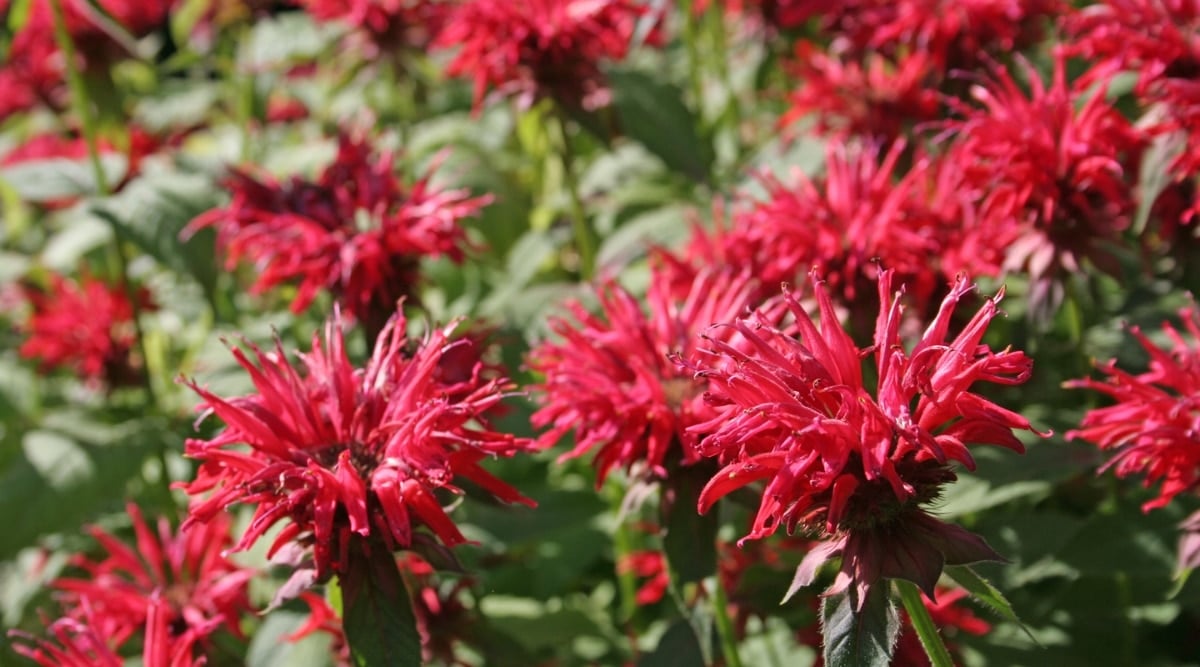

Bee balm goes by many names, along with the favored and customary wild bergamot, and is one different member of the mint family. Whereas it is further usually grown as an ornamental, it has a protracted historic previous of use as a medicinal herb, along with a culinary herb.
Bee balm has associated benefits to completely different members of the mint family. Its brightly colored and aromatic flowers are extraordinarily engaging to pollinators nevertheless give it some borders otherwise you may even see it popping up in places you don’t depend on to see it.
Borage
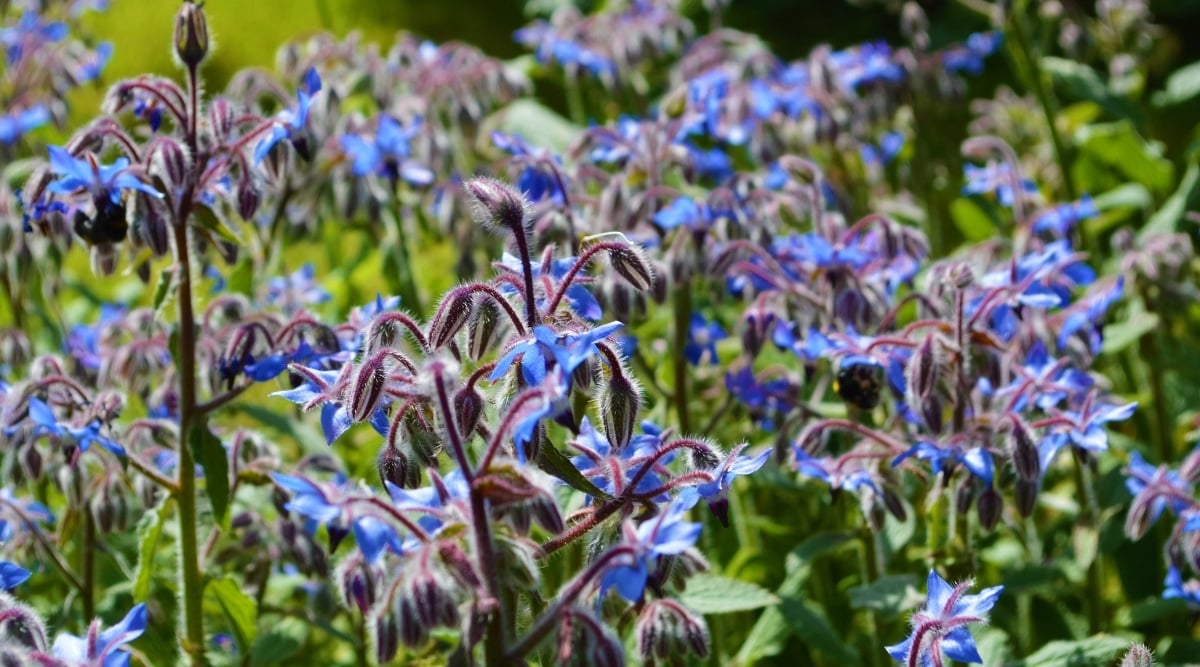

Borage, usually commonly known as starflower, has been prolonged used as a remedy for eczema, along with a remedy for arthritis, and an unbelievable provide of dietary nutritional vitamins A, B, and C. The primary advantage of planting this herb with blackberries is its attractiveness to pollinators.
The attractive blue flowers are irresistible to bees and butterflies. Be careful regarding the unfold of borage, as it can presumably flip into invasive.
Tansy
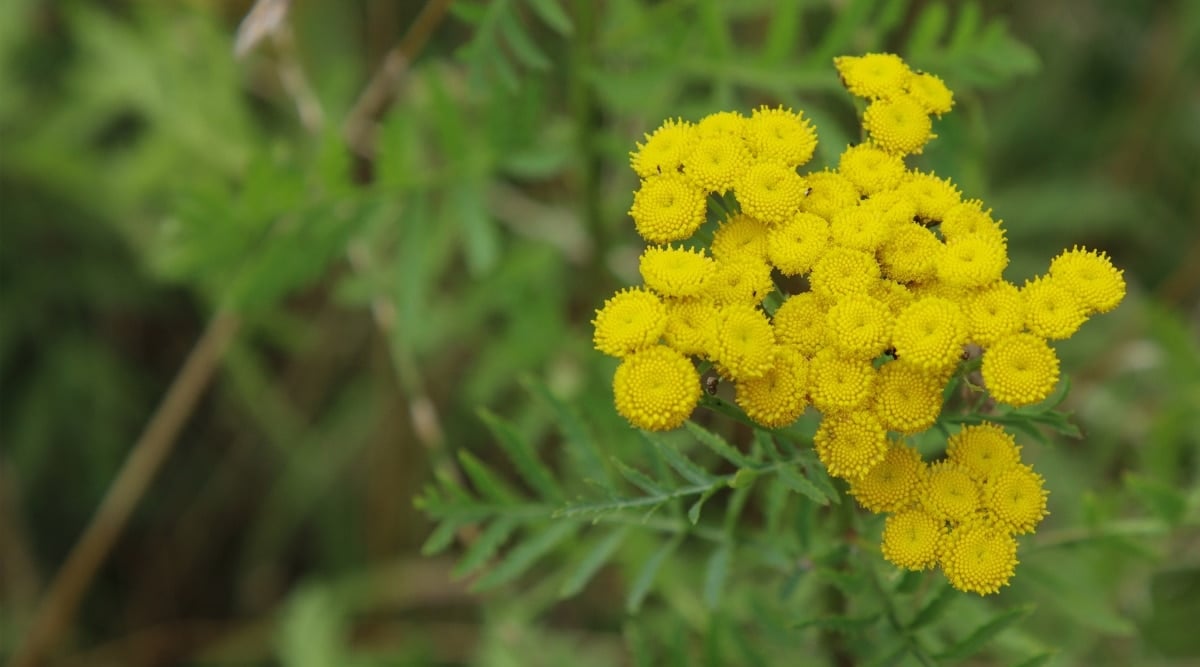

Tansy works beyond regular time as a companion to blackberries. Constructive, the flowers attraction to pollinators, nevertheless the plant has so many alternative improbable qualities in addition to. Tansy acts as a nitrogen fixer, which signifies that it takes nitrogen from the soil and makes it further obtainable for various crops to benefit from.
This plant will be extreme inside the compound camphor, which repels bugs with its sturdy scent. Tansy protects blackberries from bugs that will injury your harvest, nevertheless it is toxic to animals and other people so protect pets and children away from it. Using tansy as a companion to blackberries all nevertheless ensures a superior harvest.
Chives
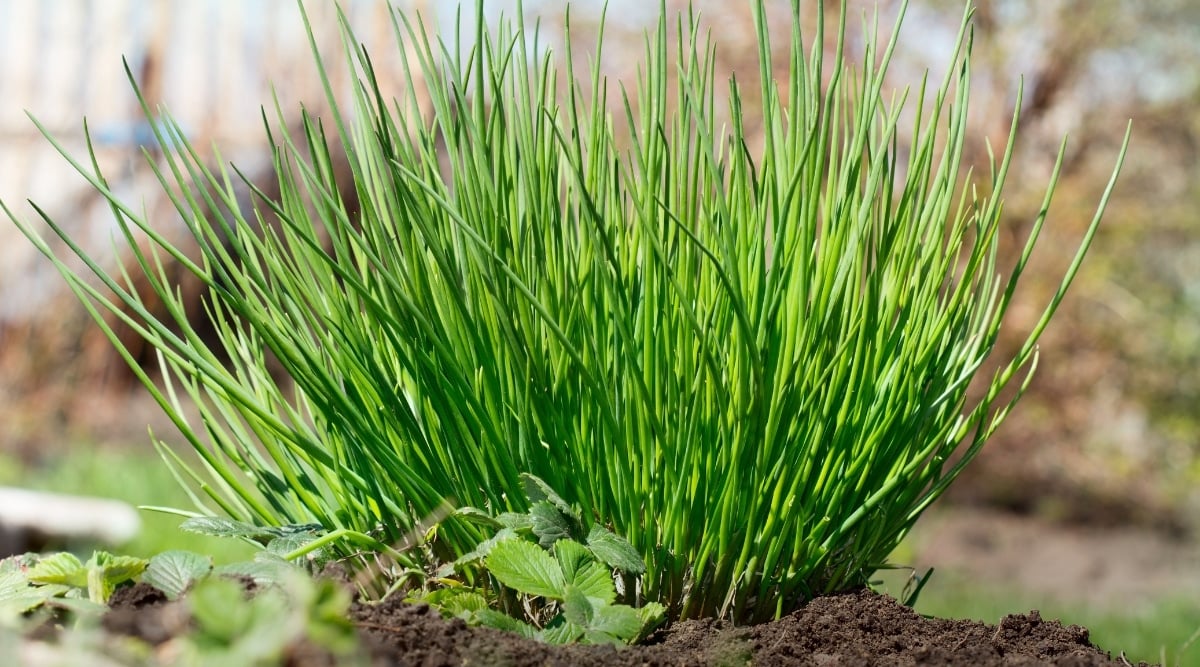

Chives are a lovely companion plant for stopping pests. Whereas blackberries often will not be significantly weak to bugs, they aren’t impervious each. Chives and completely different allium family crops are rich in sulfur, which is a pure pesticide.
Rising chives as a yard border is an effective approach to guard edibles from damaging pests along with deer and rabbits who aren’t eager on the scent.
Thyme
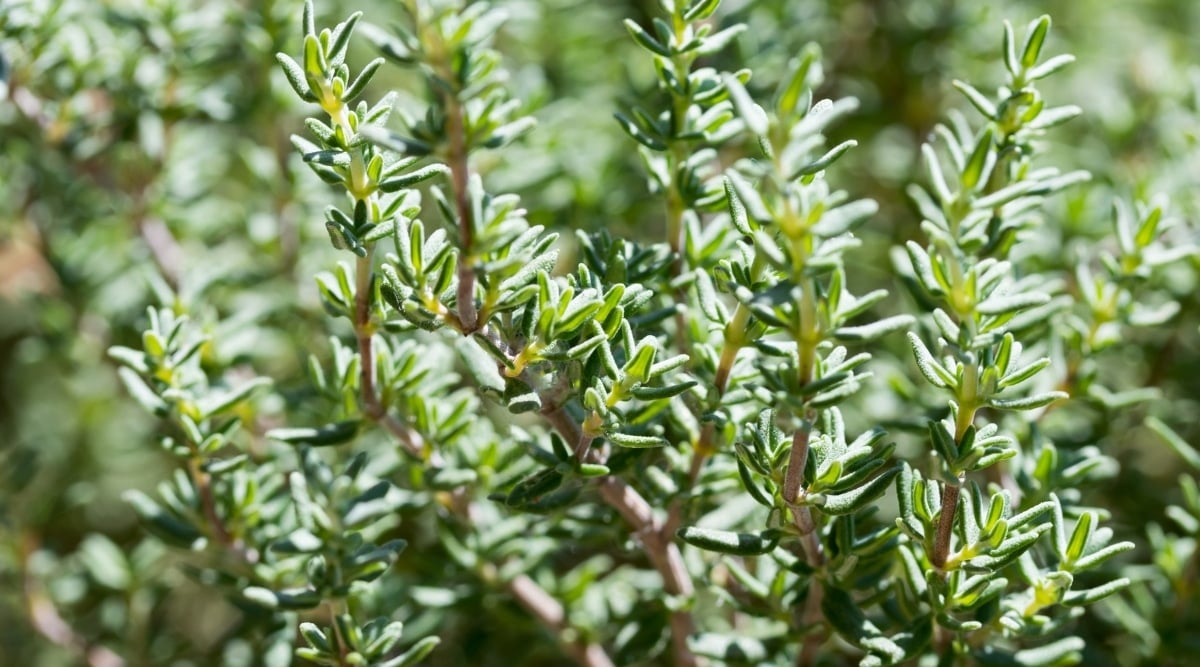

Thyme is an outstanding companion for blackberries. Honeybees are drawn to its flowers which bloom from May by way of September.
It repels quite a few harmful bugs and attracts ladybugs. Ladybugs wish to feast on aphids, in order that they’re always a pal to gardeners. To not level out, this extraordinarily versatile herb is just improbable to arrange dinner with.
Hazelnut
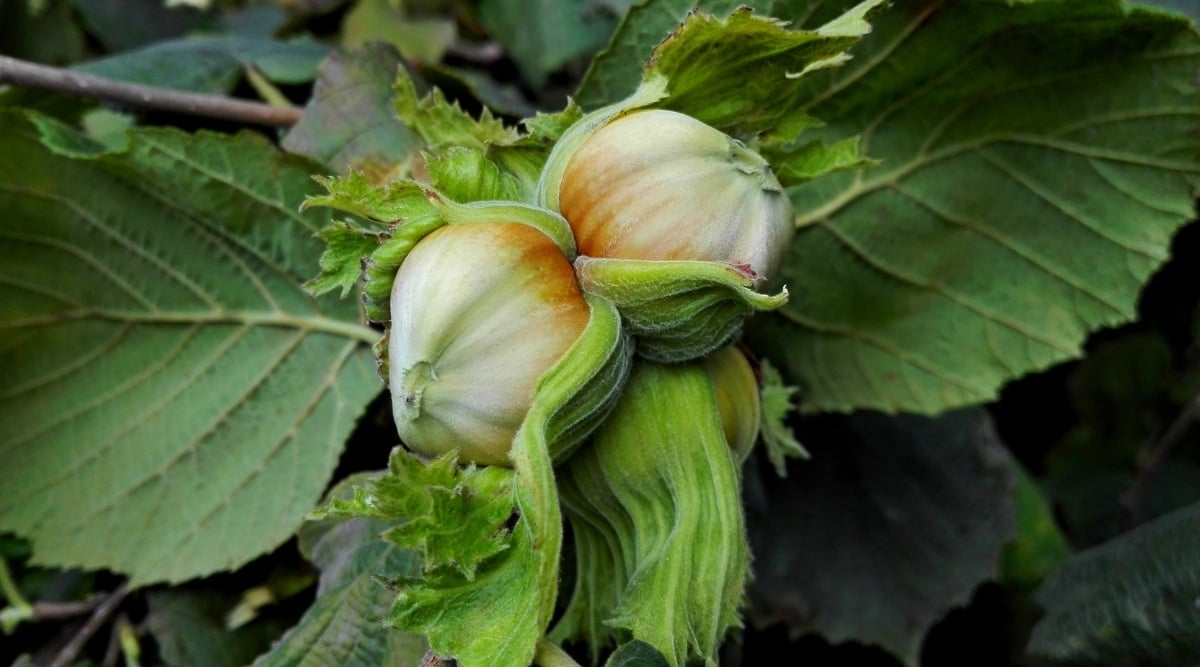

Hazelnut bushes are engaging and provide delicious and attention-grabbing seedpods filled with nuts in late summer season. These engaging crops shouldn’t be going to compete with blackberries for nutritional vitamins, and they also current a great deal of pure mulch to help in acidifying the soil which blackberries love.
Serviceberry
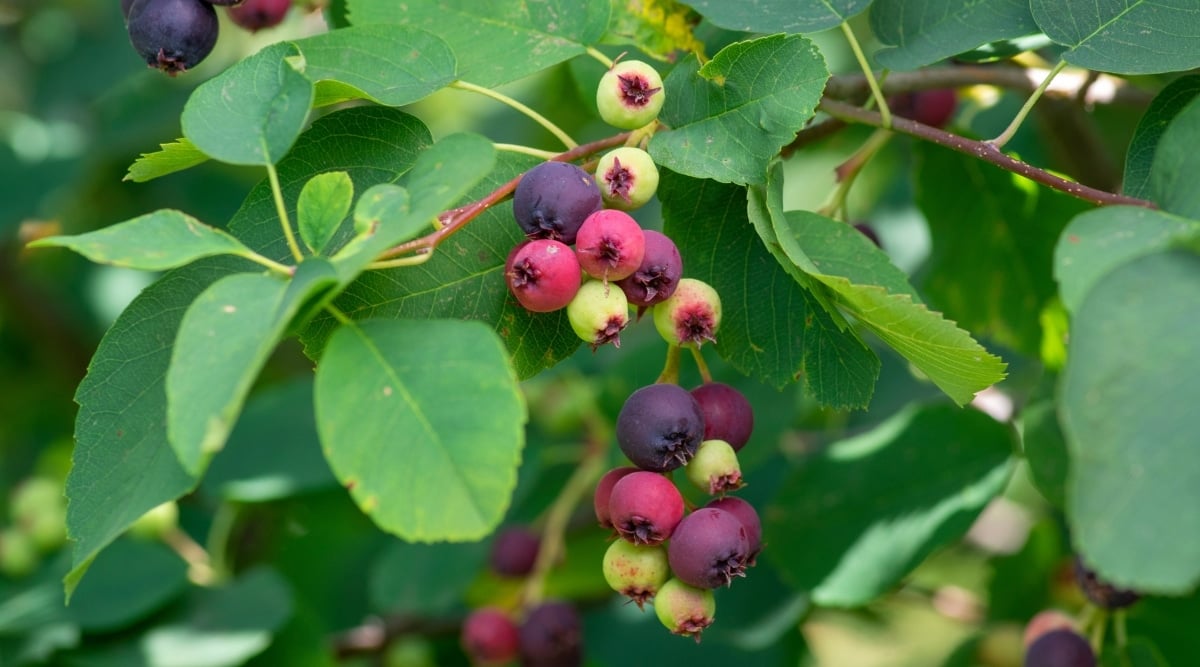

Serviceberry is a lovely blooming shrub that may draw pollinators from far and large. Planting these near your blackberries will assure a great deal of berries within the summertime, and the crops do not compete for sources.
Whereas this shrub can actually develop to treelike proportions, it may be managed as a smaller plant. Its prolific blooming habits moreover makes it a nice ornamental plant.
Thimbleberry
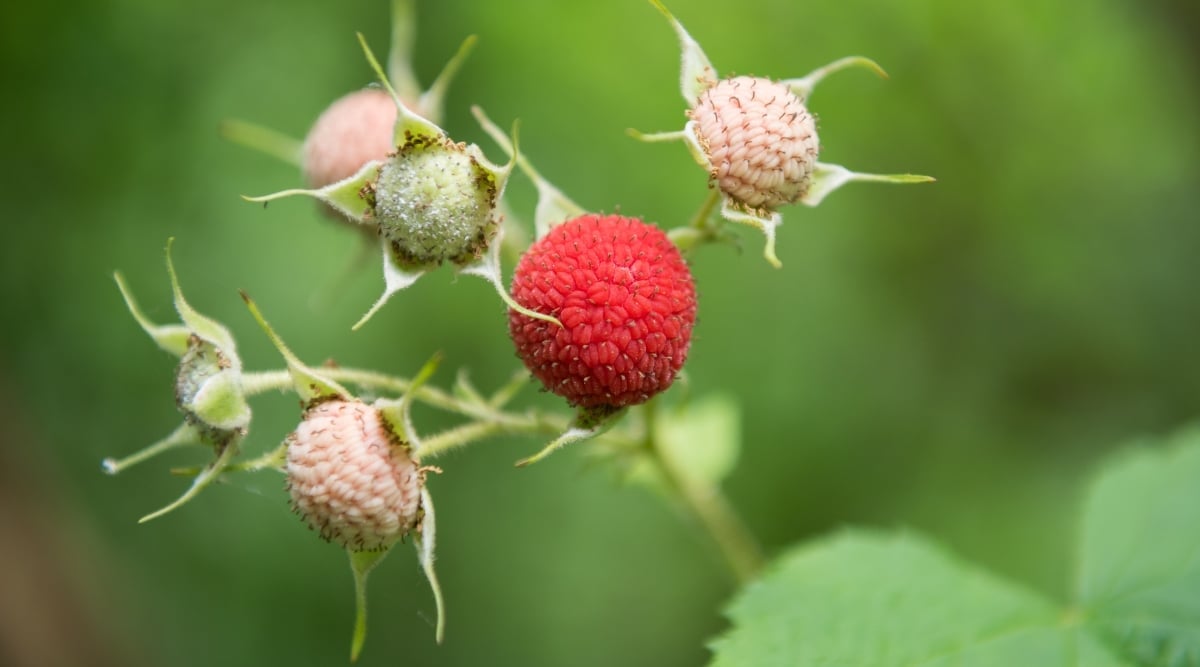

This immune-boosting berry shrub is way much less well-known than quite a lot of the companions on this guidelines, nevertheless Native Folks usually consumed this fruit for its nutritional vitamins.
Thimbleberry and blackberry are kin, as they’re every members of the Rubus genus. These two crops have associated needs and may also help one another in attracting pollinators to convey a few stellar harvest.
Roses
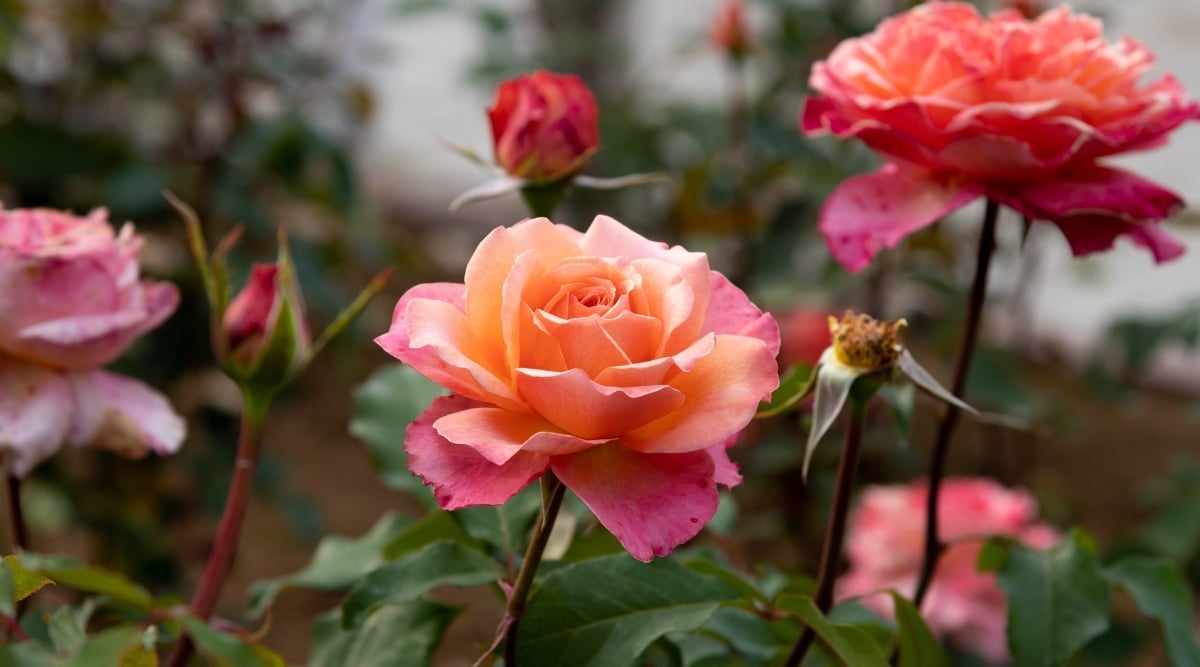

Roses make superb companions for blackberries. They’re in a position to preserve their very personal in opposition to blackberry’s rambling root system, and they also improve the presence of pollinating bugs.
Roses are engaging crops that make good companions, although they like further fertilizing than blackberries.
Sunflowers
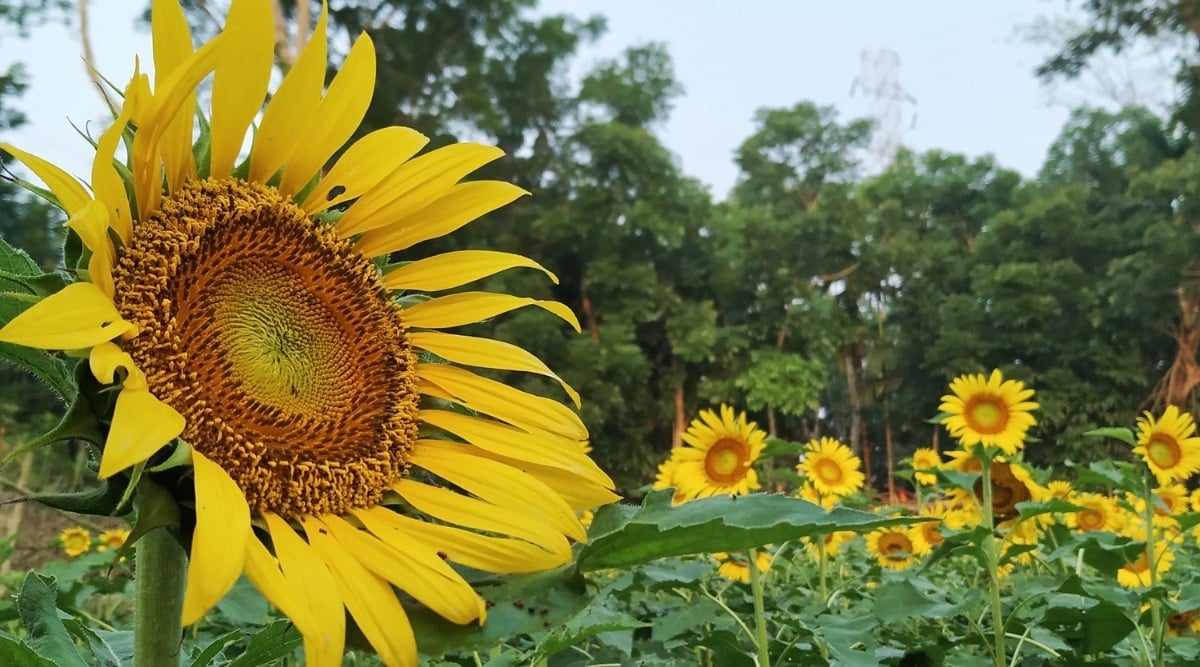

The huge faces and sensible petals of sunflowers are a heaven-send for pollinators. The yellow petals attraction to pollinators much like bees, hummingbirds, and butterflies, whereas the large, spherical coronary heart makes for a easy perch for these creatures to feed on the plentiful nectar.
These pollinators that are so drawn to these cheery flowers will pollinate your blackberry bushes to provide a great deal of berries.
Beans and Peas
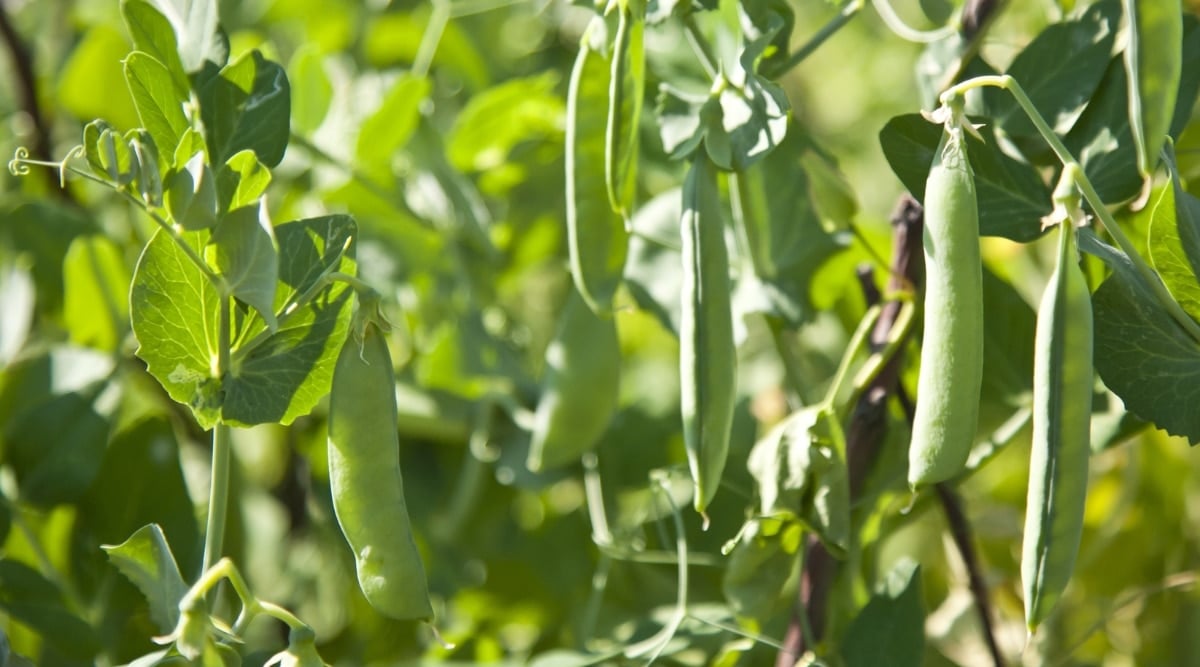

Beans and completely different legumes do an unbelievable job of enhancing poor soil that is lacking in nitrogen. They work correctly when grown in tandem collectively along with your berries.
Even larger, though, is their use as a cover crop. Rising legumes is an effective method to offer your soil a break and add some nutritional vitamins once more into the soil for model new crops to revenue from.
Garlic
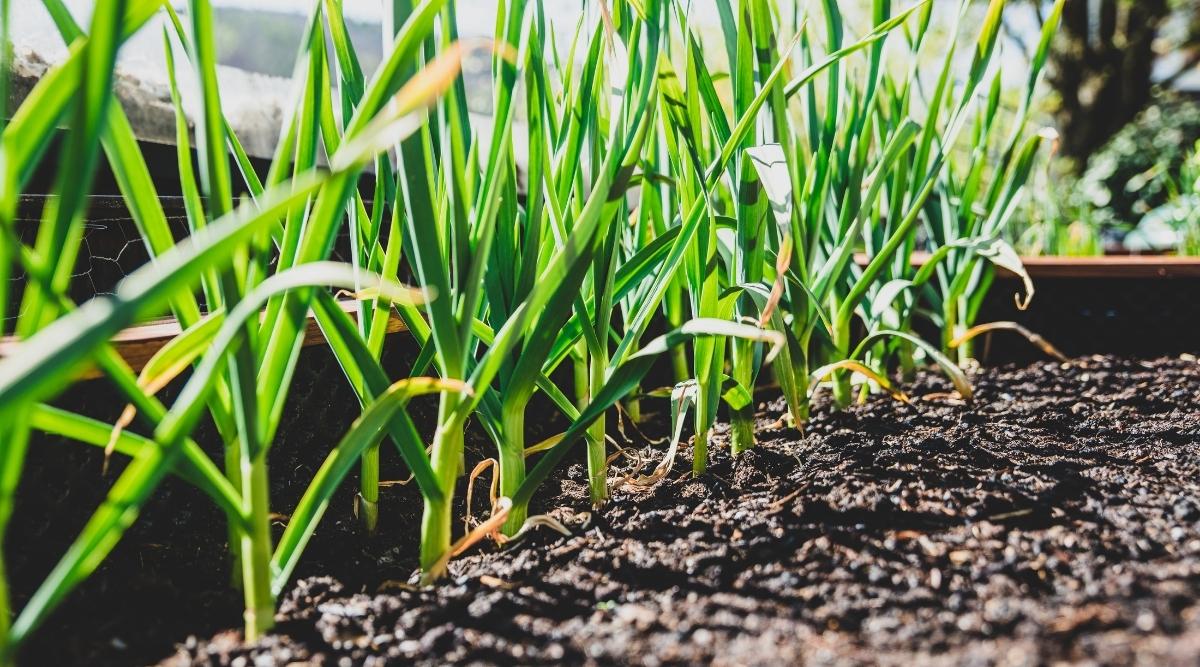

One different member of the allium family is garlic. This plant produces potent sulfur that deters pests and animals from snacking on the blackberries. Aphids, mealybugs, maggots, deer, and rabbits all despise the odor of garlic.
It’s often a pure fungicide and anti-bacterial plant that helps protect fungal and bacterial diseases away from its companion crops.
Blueberries
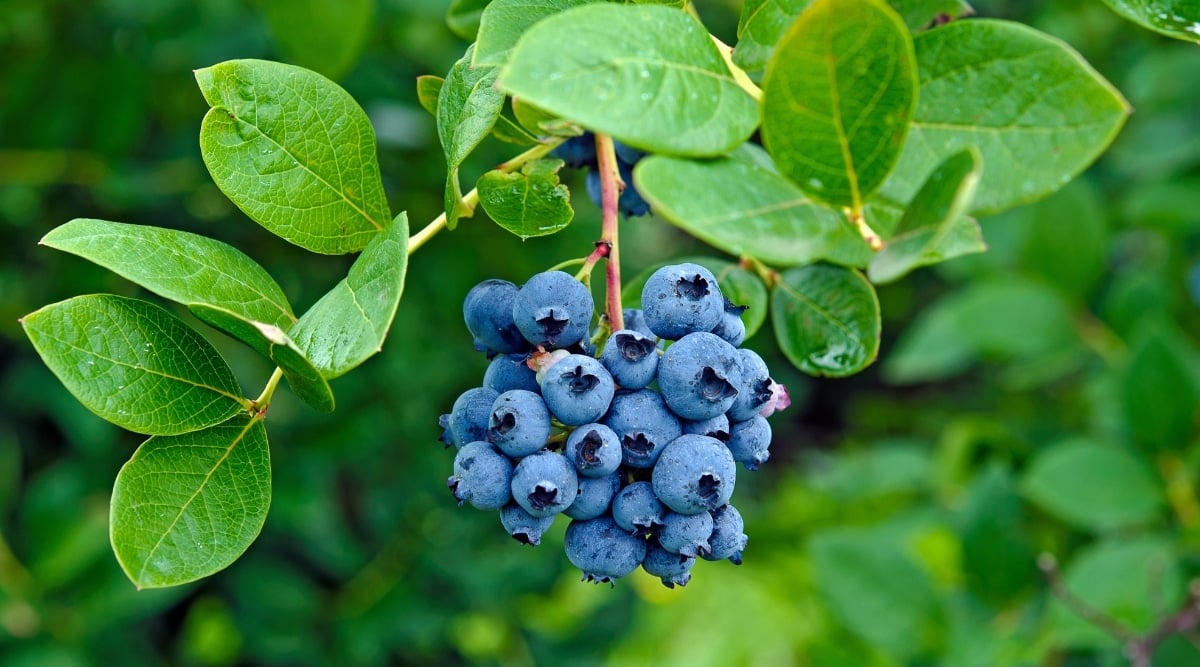

The connection between blueberries and blackberries is a simple and symbiotic one. They’ve associated needs nevertheless acquired’t compete for nutritional vitamins.
They share frequent pollinators, so inserting them shut to at least one one other will improve your yield from every crops. Making companions of these two crops will save home and assure a nice prolonged, productive harvest.
Strawberries
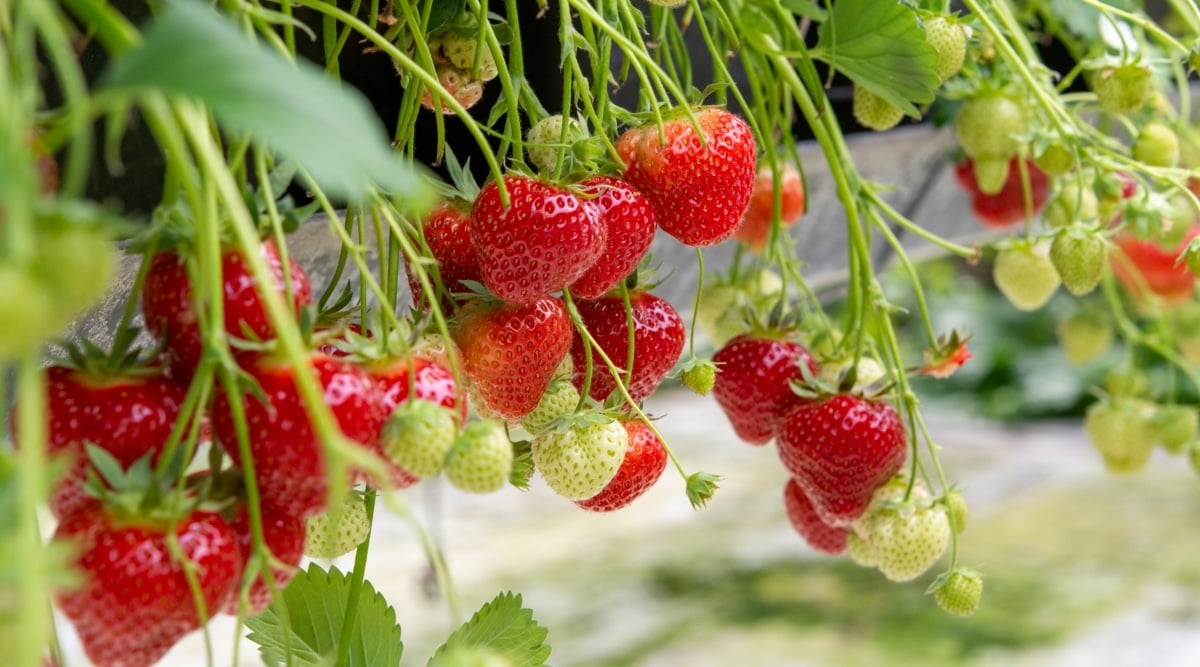

Strawberries are a lovely companion crop for blackberries. These two crops will improve the pollination and yield of every types of fruit.
Strawberries will forestall moisture loss and soil erosion for blackberries, and so they’re mutually useful after they drop their leaves inside the fall. All of that pure supplies helps to aerate and acidify the soil, which every crops love.
Closing Concepts
Companion planting is a invaluable observe that not solely opens the door to new, useful crops however as well as will improve the yield of crops already in your yard.
These companions all have good points to provide to blackberry crops, and loads of have benefits for his or her gardeners as successfully. Give one or two of these companions a shot and reap the delicious benefits of companion planting with blackberries.
[ad_2]

